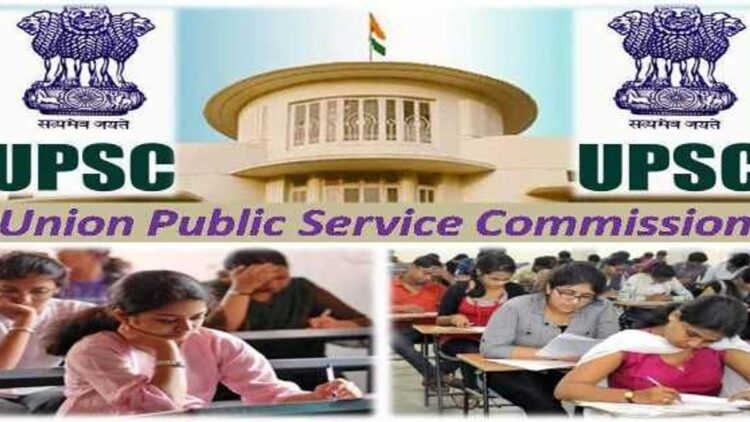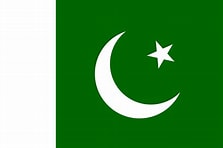The recent controversies surrounding UPSC (Union Public Service Commission) and NEET (National Eligibility cum Entrance Test) have thrust the examination system of India into the spotlight. These exams, which serve as gateways to prestigious public service and medical education, are under scrutiny for exam malpractices, accessibility, language barriers, and mental health impacts on candidates. The need for immediate policy improvements in conducting examinations in India is paramount to maintaining transparency, fairness, and efficiency.
Controversies
Recent Controversy: NEET. The recent controversy surrounding the NEET 2024 results has sparked significant concern among medical aspirants and the general public. The controversy primarily revolves around unusually high scores and allegations of discrepancies in the examination process. This year, an exceptionally high number of students (67) achieved a perfect score of 720/720, leading to multiple students sharing the top rank. There were also concerns about candidates scoring 718 and 719, which some considered implausible under the exam’s marking scheme. The National Testing Agency (NTA) attributed these high scores to revisions in the answer key and compensatory marks awarded for loss of time during the examination. The NTA formed a committee to address grievances related to time loss at certain exam centers. This resulted in 1,563 candidates receiving compensatory marks ranging from -20 to 720. Two candidates scored 718 and 719 due to these adjustments. There were also allegations of paper leaks and inflated cut-offs. Despite these accusations, the NTA maintained that the integrity of the examination was not compromised and denied any instances of a paper leak. They also clarified that the high number of top scorers was partly due to changes in the NCERT textbooks, which affected the answer key. The controversy has led to petitions in multiple high courts and widespread calls for re-evaluating or re-examining NEET 2024.
Recent Controversy: UPSC. Two recent controversies have surrounded the Union Public Service Commission (UPSC) in 2024. The first one regards fraudulent enrolment. The UPSC filed a case against a probationary IAS officer for allegedly forging disability certificates and using multiple identities to clear the civil services exam. Reportedly, an investigation revealed that she had manipulated personal details like name and photographs to avail of attempts beyond the permissible limit. The UPSC initiated action to cancel her candidature and filed an FIR with police authorities. The second one relates to the issue of lateral entry into civil services. The government asked the UPSC to withdraw its August 2024 advertisement for lateral entry posts due to concerns over the lack of adherence to reservation norms. The controversy revolves around allegations that the lateral entry process did not follow proper constitutional guidelines, particularly regarding reservations for marginalized communities. The issue has sparked a debate over the transparency and fairness of these recruitment practices.
Hyderabad NEET Scam (2023). This refers to a case of fraudulent activities and cheating, wherein some candidates used impersonators to appear for the exam. There were reports of using electronic devices like Bluetooth earphones and micro-cameras to communicate with outsiders who provided the answers. The police arrested several people, including candidates, their parents, and those running the operation. Investigations revealed that significant sums of money were exchanged to facilitate these fraudulent activities. This scam raised concerns about the integrity of the examination process, prompting authorities to reassess security measures and the validity of the results. It also led to a broader debate on preventing such malpractices in highly competitive exams like NEET.
These incidents have brought to light the vulnerabilities in the examination system and underscore the need for stricter security protocols. These protocols are crucial to maintaining the fairness and integrity of such important competitive exams, and their implementation is a key step towards improving the examination system in India.
Key Issues and Concerns
Malpractices and Cheating. These and other state-level and central exams are plagued with technological malpractices, cheating, impersonation, and exam paper leaks. Even digital tools such as AI-based cheating devices are being used, making traditional monitoring methods inadequate.
Exam Structure and Syllabus Overload. The UPSC exam’s extensive syllabus and multiple stages (Prelims, Mains, and Interview) present challenges regarding preparation time, which often spans over 2-3 years. NEET aspirants have criticised the heavily theoretical syllabus, arguing that it does not align well with the practical skills required in medical training.
Accessibility and Inclusivity. The criticism of UPSC and NEET examinations for being heavily skewed towards urban English-speaking candidates, thereby marginalising students from rural and non-English speaking backgrounds, underscores the need for inclusivity in the examination system. Overcoming the language barrier for NEET in regional areas, where students have difficulty understanding medical terminologies in their native languages, is a crucial step towards providing equal opportunities for all candidates.
Reservation and Quota Policies. Recent debates around reservation policies, particularly for NEET, have created further tension. Controversies over OBC, EWS, and state quotas have sparked legal and social debates. The merit vs. reservation debate continues to be a contentious issue.
Mental Health and High Stakes Pressure. These exams are highly competitive, with lakhs of aspirants competing for a limited number of seats or positions, leading to significant mental health stress and, in some tragic cases, suicides, especially among NEET aspirants. The high failure rates in these exams exacerbate stress, mainly because many aspirants invest years in preparation, only to face disappointment.
Recommendations for Improvement
Technology Solutions for Technology Malpractices. Incorporating AI-based proctoring systems, blockchain technology for securing question papers, and advanced biometric verification can mitigate the risk of exam fraud and impersonation. Exams can adopt digital forensics tools that monitor suspicious behaviour, unusual answer patterns, or high-speed internet access during examinations.
Decentralisation and Multiple Examination Windows. Conducting exams like NEET and UPSC at multiple windows throughout the year would reduce the burden of a single high-stakes examination and provide aspirants with more opportunities. This approach has been successfully implemented in exams like GRE and GMAT, which allow candidates flexibility and time to recover from and deal with failures.
Innovative Exam Formats. Introducing continuous assessment models or competency-based evaluations would shift focus away from a single high-stakes exam. In medical entrance exams, practical aptitude and problem-solving skills should play a bigger role. For UPSC, reforming the personality test (interview) to a more skills-oriented evaluation rather than subjective judgment would enhance the fairness of the selection process.
Regional Language Inclusion and Support. Expanding language options with robust translation services is crucial to making exams like NEET more inclusive. Additionally, ensuring medical terminologies are standardised across languages can help students from rural backgrounds perform better. Similarly, UPSC exams should provide high-quality material in regional languages, ensuring parity regarding preparation resources.
Syllabus Reforms. For UPSC, a syllabus revision committee should be established to periodically assess whether the content and structure align with the skills required in public service today. NEET should focus on balancing theoretical knowledge and practical skills, emphasising clinical reasoning and real-world medical scenarios rather than rote memorisation.
Better and Equal Opportunities. Policy improvements should address the urban-rural divide in access to quality coaching. Government-sponsored or subsidised coaching centers should be established for NEET and UPSC aspirants, especially in rural and underprivileged regions. Expanding the reach of digital education platforms (with government support) for nationwide aspirants would democratise exam preparation and offer a more level playing field.
Maintaining the Balance. A clear and consistent approach to quota and reservation policies should be maintained to ensure that neither merit nor social justice is compromised. This could include affirmative action support programs that offer extra coaching or preparatory resources to underprivileged candidates rather than a simplistic quota system. Conduct public consultations with stakeholders (aspirants, teachers, and policymakers) to refine the implementation of reservations, especially for NEET, where rural students face challenges in competitive environments.
Exam Transparency and Post-Examination Review. Establishing review committees and ensuring the public release of detailed exam performance metrics, cut-offs, and candidate reviews (for both NEET and UPSC) would increase transparency. Introducing a grievance redressal mechanism for candidates to appeal against examination issues (errors in question papers, disputes over answer keys) would ensure fair processes and reduce legal challenges.
Mental Health Support and Counselling. Policy frameworks must prioritise mental health initiatives for students preparing for these high-stakes exams. Counselling services, stress management workshops, and mental health helplines should be integrated into examination preparation processes. Mandating institutions to offer psychological support services to aspirants preparing for prolonged periods would prevent mental health crises.
Conclusion.
Reforming the policies surrounding the conduct of NEET and UPSC examinations requires a holistic approach, balancing technological advancements, mental health awareness, inclusivity, and transparency. With improved security mechanisms, mental health support, and greater language and rural access inclusivity, these exams can better serve India’s diverse and dynamic aspirant population. Ensuring fair and equitable opportunities, especially for underrepresented communities, will enhance the legitimacy and efficiency of these highly competitive examinations.








